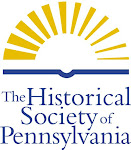In his journals from 1843-1844, William White Chew recounts, on a daily basis, his brother Anthony's deteriorating behavior, which was fueled by alcoholism and his family's enabling. William is clearly outraged at the disgrace Anthony is bringing to the family, and more particularly, the effect he has on his parents in their old age. In this entry from 1843, he describes an especially difficult evening when Anthony returns from town drunk with a friend:
"...in violent resentment against me for being better than he, for his being a disgrace to the family + I otherwise, he let out a volley of foul abuse of me before his parents...as if the utter corruption the brandy has filled him with, mind + body + feelings, and the iniquitous career he has led for years from bad to worse, the sins of various kinds + degrees he has committed + continually perpetrates, the indecency + criminality of his presumption tonight in bringing thro'...some vagabond to sleep in his bed with him--as if all these matters were peccadillies!" (p. 92)
(Images enlarge if you click on them.)

More than any other series in this collection, William White Chew's papers create a clear sketch of his character, his political and moral opinions, and his passions.
In this poem, he laments the love he has for his cousin Mary Bayard, who is already married.
It begins "And dost thou ask, and wilt thou hear / The common story I can tell, / Of early--lasting--gnawing care, / Which sometimes makes this world a hell?"
A later stanza laments, "From round my heart, the wreath of snow, / With which I've made it seem so cold, / The flame thou'lt see within, is meant / Alone to prove to thee the truth / Of feelings doubled, which were sent / To mildew (God knows why) my youth."

His life was lived with passion and drama, and his writings provide us a glimpse into the world he inhabited.








